Leukaemia is cancer of the white blood cells. It affects people of any age.
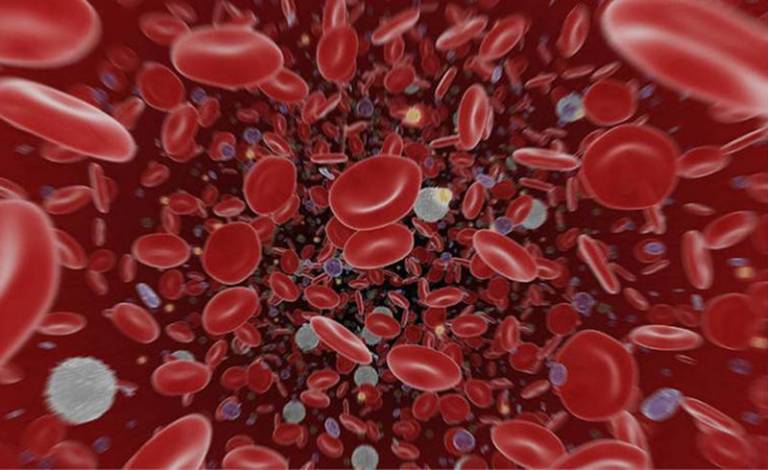
There are several types of leukaemia which are grouped in two ways: a) by how quickly the disease develops; b) by the type of blood cell that is affected. Leukaemia is categorised as either acute, where the condition progresses rapidly and requires immediate treatment, or chronic, where it progresses slowly over many years.

Cancer results from the accumulation of mistakes in cells when they divide. Billions of cells in our body divide every day. They have to copy their genes (instructions) perfectly so that the daughter cells will grow up to be the same as the parent cells. For example, a liver cell, when it divides needs to be replaced with more liver cells.
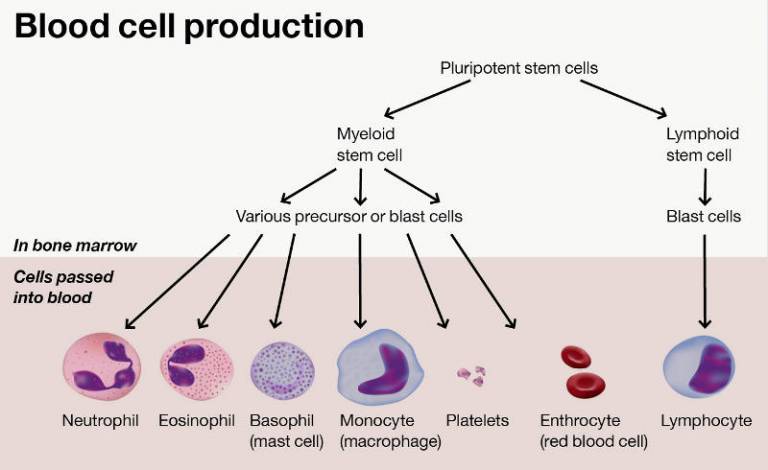
Blood cells are made in the bone marrow by stem cells. Stem cells constantly divide and produce new cells. Some new cells remain as stem cells. Others go through a series of maturing stages before forming into mature blood cells which are released into the bloodstream.
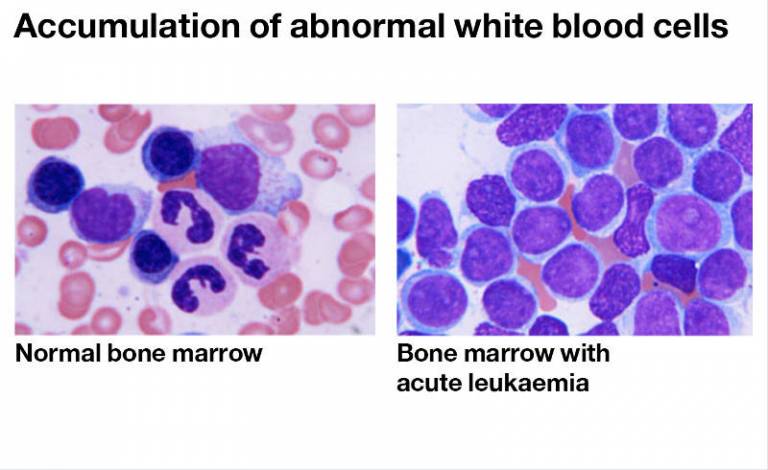
Leukaemia causes abnormal immature white blood cells to accumulate in the bone marrow before being released into the blood stream. Lymphocytic and lymphoblastic leukaemias are caused by cancer of the lymhocytes. Myeloid leukaemias are caused by cancer of the myeloid cells.
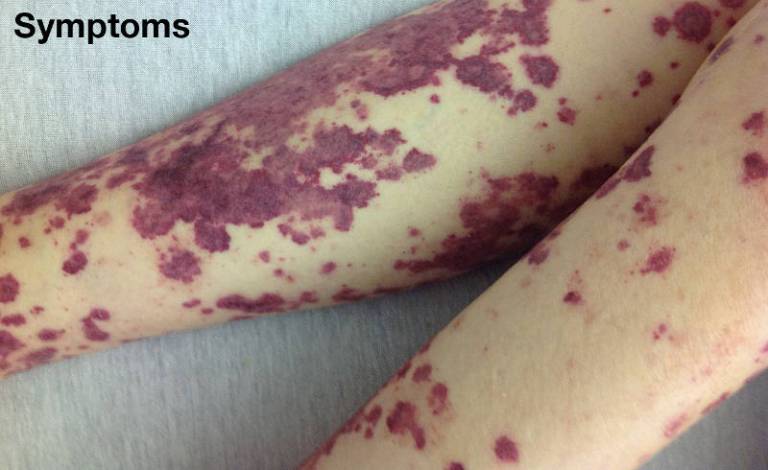
Symptoms can include:
Pale skin, tiredness, fever, weight loss, frequent infections, unusual and frequent bleeding, easily bruised skin, flat red or purple spots on the skin (petechiae), bone and joint pain, abdominal discomfort caused by swelling of the liver or spleen.
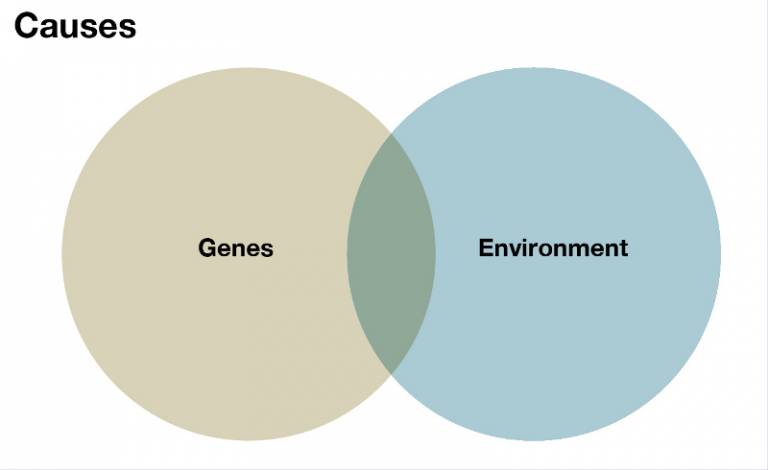
We do not understand the exact causes of leukaemia. It seems to develop from a combination of genetic and environmental factors. Possible environmental facotrs include very high levels of radiation and exposure to certain substances such as pesticides or chemicals.

Treatments include chemotherapy, radiotherapy, and immune therapies. All treatments aim to kill leukaemia cells whilst leaving normal healthy cells in the blood and bone marrow unharmed. At the Institute of Immunity and Transplantation we are developing and testing new treatments which use genetically modified immune cells to target blood cancers.
 Close
Close

